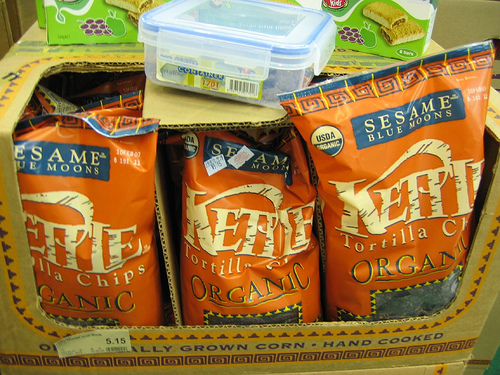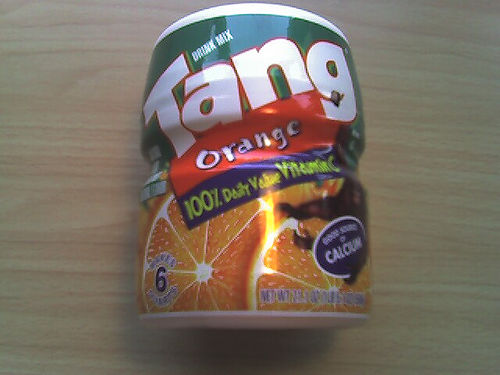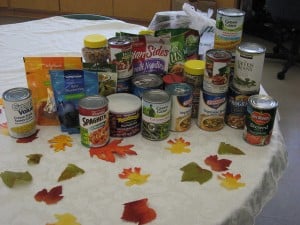(as long as you make it yourself.)

Last week, Michael Pollan tweeted a paper on nutrition by Carlos Monteiro entitled “There is No Such Thing as a Healthy Ultra-Processed Product.” Food companies, the paper argues, promote their products as ‘healthy’ based on either of two things:
1. The absence of perceived “bad” ingredients (0g trans fats! NO High Fructose Corn Syrup!)
2. Reduced levels of (X “bad” component: fat, salt, sugar) as compared to comparable products
and
3. The addition of nutrients (“enriched” or “fortified”)

The paper is not very interesting reading, but overall, it makes a good point, which is this: stuff that comes out of the package “ready-to-eat” is probably not good for you. Yet it is precisely the ingredients that get processed into foods like that–cereals, granola bars, powdered flavored drinks, chips–that receive the HIGHEST government subsidies (think corn and soybeans, which get processed into literally thousands of different unpronounceable food ingredients.) And precisely those products are the ones backed by enormous advertising budgets to convince people that they are HEALTHY.
Let me put some flesh on those bones: once, I sat in one of the very nicest restaurants in Philadelphia and was served a delicious, handmade dessert–something involving chocolate and whipped cream, I don’t remember what, exactly–and one of the people at my table, instead of eating that, pulled out some kind of chocolate-flavored protein bar and ate that instead, explaining that he was on a diet and that this was ‘healthier’ because it had X number of grams of protein with only X amount of carbs. His perception was clearly that this bar (which, as very nearly all such bars are, was an ultra-processed, partially artificial THING made in some New Jersey industrial ‘park’) was “superior” to the cake.
Here’s another example: breakfast cereal. The companies that make ready-to-eat cereals have done a fabulous job of convincing people that there’s something special about cereal that makes it a right and proper (if not THE right and proper) thing to eat for breakfast. In recent years, we’ve seen them all scramble to put a bit of WHOLE GRAINS! in there and then shout about it on the package. But you know what? Most of the time, a few slices of whole grain bread with butter and jam (or some cheese) is a far superior breakfast, nutritionally speaking. Most cereals qualify as “ultra-processed” foods.

Maybe these things don’t seem like such a big deal. But they kind of are a big deal. In developing countries, ultra-processed products (Monteiro uses Tang as an example) are viewed as modern and ‘healthier’ than the traditional diets. As such, even though products like these are comparably expensive, people will spring for them–with disastrous long-term effects on public and environmental health. In our own country, the lobbying pull of food producers prevents the likes of Michelle Obama from saying clearly “don’t eat stuff that comes ready to eat from a package” and allows pledges by Wal-Mart to reduce X number of “bad” ingredients as part of Let’s Move.
Monteiro isn’t saying never eat anything that comes from a package, and neither am I. But I think what we’re both saying is this: REAL food–and thus REAL wellness–doesn’t come from a package loaded with health claims and advertisements of “fortification,” or, indeed, of “reduced” whatever.
In a nutshell?
EAT THE CHOCOLATE CAKE! (not a flavored ‘energy’ bar)
EAT THE WHIPPED CREAM! (not the fat-free whipped ‘topping.’)













